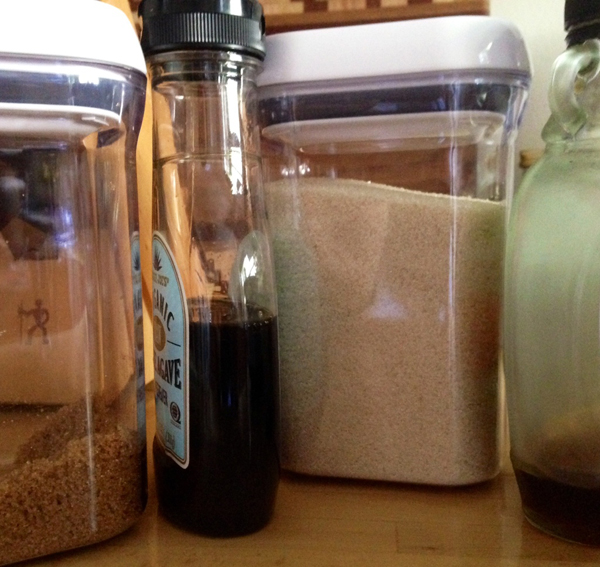
The holiday months tend to be the worst for our diet, and mostly because of the increased amounts of refined and processed sugar available to us. Cookies, cakes, pies, and other holiday treats tend to overwhelm our homes and work spaces. We tell ourselves it’s a special occasion and suddenly we’re way off track from eating clean- promising ourselves that come January 1st we’re back on the wagon. Well, as you can gather, this isn’t what a healthy, balanced lifestyle looks like. Here are some facts on sugar and how we can wean it out of our diets without feeling deprived.
At four calories per gram, sugars are naturally present in fruits, dairy products, and vegetables in the form of fructose, lactose, and glucose. These natural, unprocessed, and unrefined forms of sugar are easily recognized by the body and broken down in the small intestine to deliver energy and nutrients to support various cells in our bodies.
Refined sugar has quite the opposite effect on our bodies and is added to MOST processed foods including sauces, spreads, beverages, dried fruits, and other packaged foods. Refined sugar is chemically treated and engineered. Some example are high-fructose corn syrup, table sugar, and maltose. However, our bodies don’t get the same nutritional benefits, (fiber, calcium, vitamins and minerals, etc.) when we consume them.
All sugars are difficult to digest and in excess can cause disruption in our digestive system and because they contain no health benefits our bodies simply store them at various fat sites, commonly the waist, thighs, and chest. According to the American Council on Exercise, an excess of sugar in our diets can not only increase our risk of obesity but has also been known to impair memory, concentration, increase appetite, increase joint inflammation, decrease energy levels, and is directly correlated as a leading cause of Type 2 Diabetes. It is recommended that the average American consume no more than 30 grams of sugar per day. Here are some tips to help you cut back on sugar.
1) Don’t go cold turkey! Snack on fruits and allow yourself some dark chocolate for the first couple of weeks while your body adjusts.
2) Get lots of rest. Typically when we cut out sugar, we can get cranky and irritable- just like withdrawal from many drugs. Give yourself an extra hour of sleep while you adjust your energy levels naturally.
3) Stay hydrated. Often times when we need a “pick me up”- we’re simply dehydrated. Always keep a bottle of water on hand, and if you’re tired of water- try sparkling water with lemon or unsweetened iced-tea. Avoid using unnaturally flavored waters or chemical-sweetener because they cause the same glycemic effect as sugar and can have been found to increase sugar cravings.
4) Get it out of the house. Toss or donate any candies, cookies, or sweets so they aren’t around you and replace with healthy and low-sugar snacks.
5) Up your fats and proteins. Fats and proteins when combined with carbohydrates keep you full and slow down the absorption of the sugars in carbohydrates. Stick with whole grain carbohydrates (brown rice, sprouted wheat, sweet potato) because they have more fiber that will also slow down the absorption and help you feel fuller, and less likely to reach for sweets.
6) Limit consumption of processed foods, (avoid anything out of a can, bag, or jar). Sugar is used to make processed foods taste better. Sugar can be found in soups, beans, and many pre-packaged “healthy foods”. Try using spices to add flavor and make your own foods. Replace pasta sauce with actual tomatoes or use lemon or non-balsamic vinegars to top your salads or lean meats.



